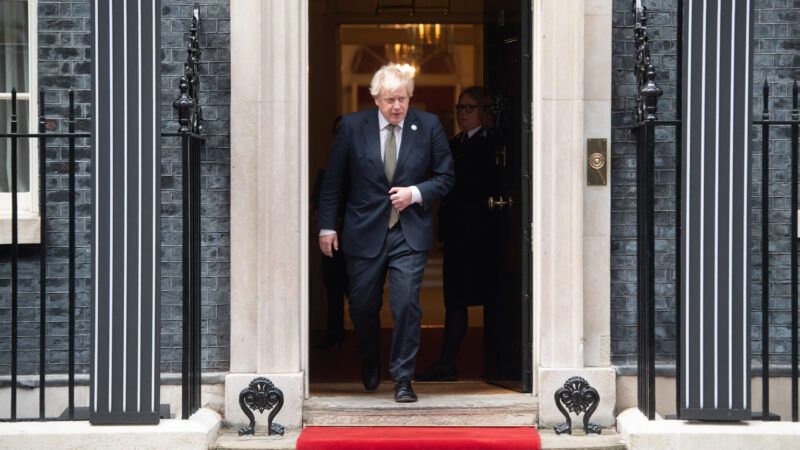The U.K. Is Finally Ending Its Mandatory Hotel Quarantines
But are they gone for good?

After seven months, the United Kingdom is poised to scrap its remaining hotel quarantine requirements for incoming travelers. Boris Johnson's transport secretary, Grant Shapps, has said the rules will be fully removed on November 1.
Originally introduced during the U.K.'s tough winter lockdown, the policy required 10-day hotel quarantines for all travelers returning from certain "red list" countries with high COVID case rates. The system was based on a study of similar schemes in New Zealand and elsewhere. Residents received three daily meals and supervised exercise breaks; they could order food or have packages delivered, but in-person visits were banned.
Some of the participating hotels cost less than $80 a night, but "guests" were expected to shell out $2,413 for their stay, with the additional money covering food, security, and two mandatory PCR tests. In August, the fee was increased to $3,156, a move intended to deter "red list" travel.
It wasn't just the cost that ballooned over time—the destinations involved did too. Back in February, when the U.K. vaccination program was still picking up pace, the red list comprised 33 countries regarded as "high risk." By summer, it had expanded to dozens more, including India, Turkey, Pakistan, Thailand, the UAE, and Egypt.
Having originally criminalized all "non-essential" foreign travel in January, the U.K. government hoped that hotel quarantine would form part of a traffic light system intended to ease the borders open. Countries would be designed either green (quarantine-free), amber (home quarantine required), or red (hotel quarantine). In practice, the scheme was confusing, with changes often announced at short notice—leaving travelers scrambling to get back to avoid quarantine restrictions.
The government was unapologetic about any disruption or confusion. As Britain entered its summer vacation season, Boris Johnson was warning that he would not hesitate to move a country from green to red. Anyone who lied about visiting a red list country after traveling back indirectly could face 10 years in prison.
Through late September, about 200,000 people were forced to endure hotel quarantines.
What were the quarantines like? Within weeks of coming online, the system faced routine complaints from residents who blasted the poor quality of food, the lack of fresh air, and the uncomfortable rooms. In August, the BBC broadcast footage recorded by quarantine residents showing slugs and mold in their room.
Other serious complaints have included allegations of sexual harassment by security guards and of sick and disabled residents being denied important medical treament. Cultural mistakes have reared their head too, as with the hotel that had to apologize for serving pork-based meals to Muslim guests.
The scheme was also attacked for hypocrisy, as when VIP delegates from this summer's European soccer tournament were granted an exemption. The government went on to extend a similar exemption to professional soccer players traveling to games in red-listed countries for September's World Cup qualifiers.
The end of hotel quarantine follows a broader easing of U.K. travel rules (and three months after the removal of domestic restrictions). A move to ease the "testing" requirements on vaccinated travelers (who are no longer required to purchase PCR tests), for example, was confirmed earlier this month. The red list was slashed to seven countries, all concentrated in Central or South America. Some of the seven remaining red list countries include Colombia, Haiti, and Venezuela.
Downing Street's decision to abandon the hotel quarantines may be linked to the upcoming COP 26 climate change conference in Glasgow. The government previously suggested, for example, that it would reduce the delegates' quarantine time and even pay their fees. The minister organizing the summit, meanwhile, has been exempt from the rules for months. Eliminating the quarantine requirements decreases the chances of political blowback for double standards.
The end of this miserable policy will be welcomed by many critics of COVID authoritarianism. But don't breathe a sigh of relief just yet: Even as he announced the change, Transport Secretary Shapps stressed that the scheme would remain on ice, ready to be reenacted if another COVID variant of concern emerges.


Show Comments (16)